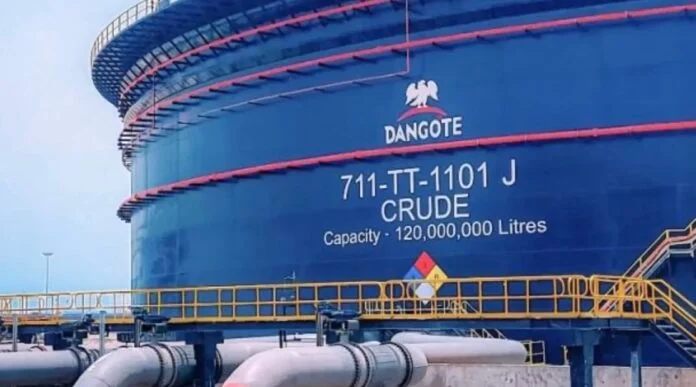Abu Dhabi — The Nigerian National Petroleum Company Limited (NNPC Ltd.) has announced plans to raise its equity interest in the $20 billion Dangote Petroleum Refinery to 20 percent, reinforcing Nigeria’s bid for energy independence and stronger participation in the downstream oil market.
The disclosure was made by Bayo Ojulari, Group Chief Executive Officer of NNPC Ltd., during a session at the Abu Dhabi International Petroleum Exhibition and Conference (ADIPEC) 2025. Ojulari explained that the strategic expansion aligns with the company’s long-term goal of deepening domestic refining, ensuring energy security, and promoting broader Nigerian ownership in key energy assets.
“Our objective is to strengthen Nigeria’s refining footprint by increasing NNPC’s stake in the Dangote Refinery to 20 percent,” he said, according to a report by Reuters.
The development follows recent remarks by Aliko Dangote, President of Dangote Group, who disclosed plans to list between 5 and 10 percent of the refinery’s shares on the Nigerian Exchange (NGX) within the next year. The move mirrors the group’s earlier public listing strategy for its cement and sugar divisions.
Dangote said the upcoming share sale would be implemented gradually, guided by market capacity and investor interest.
“We expect to offer between five and ten percent within a year,” Dangote stated. “The goal is to demonstrate the refinery’s capacity before expanding investor participation. Ultimately, we don’t plan to retain more than 65 to 70 percent ownership.”
NNPC currently holds a 7.2 percent stake in the refinery, meaning the new investment would push its shareholding up by roughly 13 percent — a signal of growing collaboration between the state-owned oil firm and Africa’s largest privately owned refinery.
The plan also coincides with NNPC’s ongoing efforts to revive Nigeria’s dormant state-owned refineries in Port Harcourt, Warri, and Kaduna through technical partnerships and fresh equity injections. Despite previous rehabilitation attempts, all three plants remain non-operational, leaving the nation heavily dependent on imported petroleum products.
Industry analysts believe that a fully functional Dangote Refinery, coupled with successful state refinery upgrades, could finally position Nigeria for self-sufficiency in refined petroleum output, ending decades of reliance on imports.
Ojulari further highlighted that the company has made tangible progress in transparency and governance reforms as part of its transition to a publicly listed entity.
“The Petroleum Industry Act mandates NNPC’s transformation into a public company,” he said. “Since May, we have consistently published monthly performance reports — a key step toward accountability and investor confidence.”
He reaffirmed NNPC’s readiness for global competition, noting that the company’s future lies in efficiency, profitability, and openness.
“We are building an institution that embodies commercial excellence and integrity — one that Nigerians and international investors can trust,” Ojulari added.

